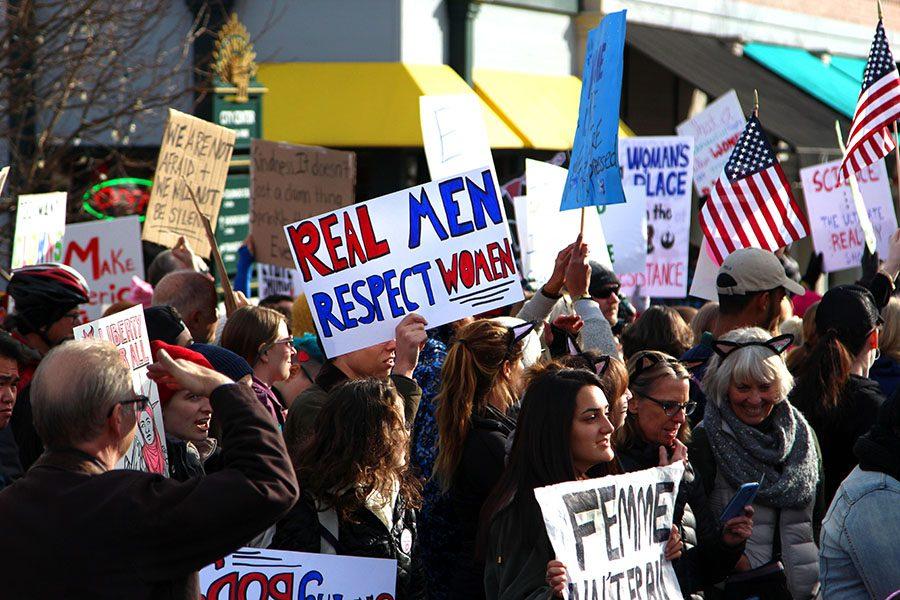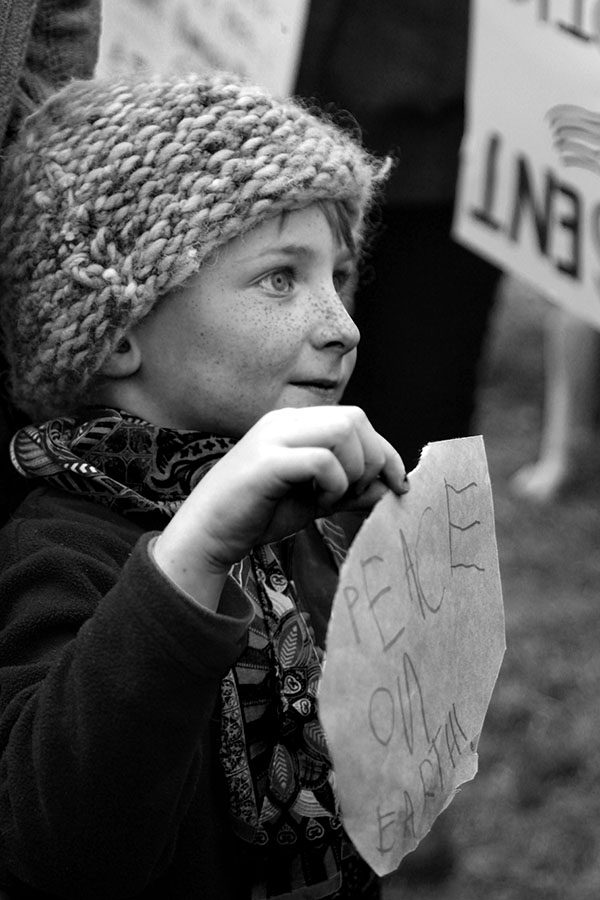Hundreds of Thousands of Women March Across the Springs, Colorado, and The U.S.
Protesters hold signs and American flags at the Colorado Springs Womens’ March on 1/21.
January 27, 2017
All across the nation on Saturday 1/21, hundreds of thousands of people marched to support a vast range of causes, all under the umbrella of the Women’s March. According to Erica Chenoweth, professor the Associate Dean for research at the Josef Korbel School of International Studies at the University of Denver, at least 3.3 million people marched on Saturday in more than 500 separate (but connected in organization) marches. Denver, Seattle, San Francisco, Los Angeles, Washington D.C, New York, Boston and Chicago’s marches all had over 100,000 participants. The marches aimed to be inclusive, and mostly advocate for positive causes, though most marches also had very prominent anti-Trump rhetoric, as many of the protesters feel that President Trump threatens their beliefs.
The Denver Women’s march drew between 200,000 and 250,000 activists around Denver’s Civic Center Park. Among those hundreds of thousands was Coronado junior Deanna Cooper, who recounted the experience: “It was great” she said, “I felt so fulfilled with support and love.” The March’s purpose, according to Cooper was “to unify, to show our government we won’t stand for hate;” she said it was particularly impactful because “there were so many people who [were there] all supporting the same cause,” which were, according to her, mostly surrounding “the wage gap, reproductive rights, discrimination, and LGBTQIA rights.” The vast array of issues was supported en masse by women and men alike at the march, who were out in force to show their support and solidarity. But, there was also apparently “a lot of anti-trump protesting.” Cooper was “ready in case something happened” by having pepper spray and her emergency contact written on her arm “but was pleasantly surprised” to not need it, as there was “no violence or counter protesters” at the march.
In Colorado Springs, the march was smaller but still somewhat surprisingly populous at 7,000 people, making it one of the top 50 largest in the nation. Several Coronado students attended to make a stand, including junior Mallory Mayne, and Becca Bieda, who took the included photographs. The march centered around Acacia Park and from there marched down Tejon Street, lasting around 2 hours total. According to Mayne, the event was “a women’s march, but people weren’t there just for women,” instead, it was “more about overall feminism and general equality,” (including the aforementioned topics in the Denver march). Mallory says the gathering was “very peaceful” and recounted that she “saw a lot of kindness and generosity, everyone was kind of just one.”
One of the chief criticisms of the march was that it did not seem to be very effective on its own, and did not produce real results. One critic who wishes to remain nameless complained that “they were just making a lot of noise” and that it “won’t ever really do anything.” In response, Mayne said, “it is really hard to change things, but I don’t think that was really the point.” She is of the opinion that it was more just making a statement and showing discontent. Cooper, on the other hand, believes there is more to be done, “people can call their congressmen and state legislatures, it takes one minute,” said Cooper. Furthermore, the International Awareness Club head added, “10 members of the state Congress live right here in Colorado Springs, so there is no excuse not be heard.”
Becca Bieda
Regardless of the practical impact, the march was large and loud, and as one of the largest in American history, protesters will most likely not be ignored, but it remains to be seen what the practical result of the march will be.



